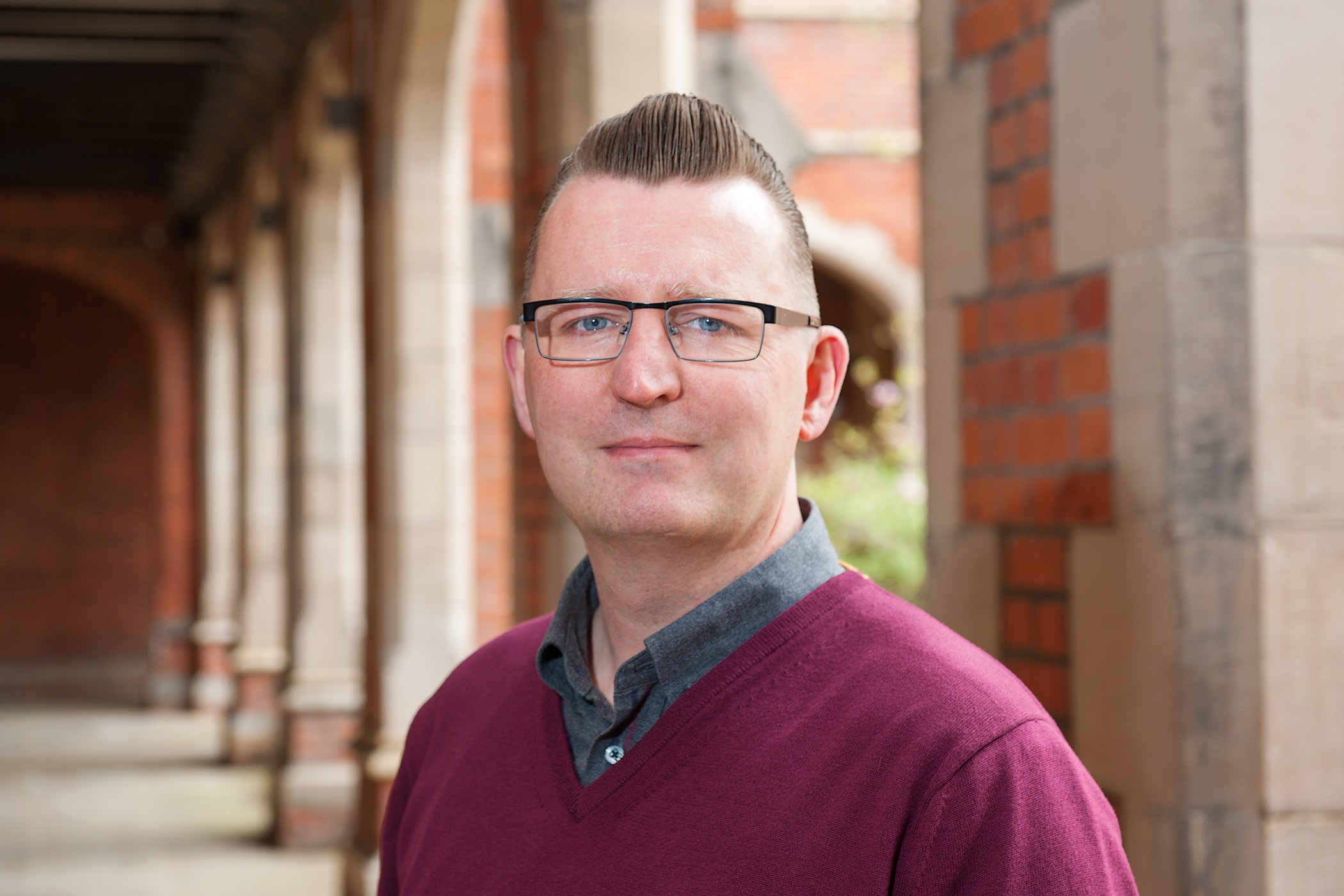Why choose MA Education at Middlesex?
Structured so that assignments can be applied to real world situations, the course will allow you to consider a wide range of elements of education including leadership and management, social justice, creative learning and teaching, Special Educational Needs, and many more areas. You will be encouraged to evaluate existing practices, develop new approaches and become immersed in contemporary education research.
Middlesex's extensive history of delivering leading education courses ensures that you will benefit from the guidance of outstanding tutors who bring a wealth of professional experience to their teaching. As research-leaders, our academics are widely published across disciplines such as citizenship, Equity, Diversity and Inclusion, and creative pedagogies.
Middlesex University undergraduate alumni can benefit from a 20% discount to start their MA Education in September.
What will you gain?
- You will gain a deep and systematic knowledge of how different theorists and policy makers have understood the relationship between education and society
- You will find your own perspective on education and begin to consider how this could be applied in practice
- You will explore at least one of the following areas in detail: social justice, learning and teaching, special educational needs and disabilities (SEND), leadership and management
- You will gain the confidence to research into educational contexts with understanding and rigour
- You will gain the knowledge and skills needed to develop plans for appropriate solutions to open ended problems in educational contexts
- You will be able to communicate your ideas through a wide range of media
3 great reasons to pick this course
About your course
What you will study on the MA Education?
The MA Education will allow you to explore critical theoretical insights, reflect on your own educational experience and the education of others, and consider how you might develop educational practice.
The range of pathways offered by the programme invites a stimulating range of perspectives and ways of thinking. These pathways include:
- Special Educational Needs and Disabilities
- Learning and Teaching
- Leadership and Management
- Social Justice
Whilst there are various pathways, offering a wide range of options, a concern with both society and pedagogy underpins the whole programme: how society and education interact, how one influences the other, and how education can be marshalled to shape the future of both individuals and the world.
As a student, you will develop creative responses to briefs. You will engage in reflective practice during the programme, allowing them insights to previous practice and to formulate a strategy for future growth. You will engage with real world examples whilst also being introduced to ideas and theories that can illuminate these examples in new ways. You will take ideas outlined in sessions and will be invited to consider how these might be applied in different educational contexts. Finally, you will have an opportunity each semester to reflect on how what you have learned might be utilised in your current and/or future career paths.
Modules
The core focus of this innovative MA is the relationship of education to the world around us. It meets the needs of those who wish to further their knowledge and skills of the theory and processes of education. The course may be undertaken on an individual or collective basis, with groups of teachers and education professionals both eligible to enrol.
Compulsory
This module offers an introduction to educational research and the variety of roles research plays for educational practitioners and other interest groups. You will explore how knowledge is generated in and about education across different disciplinary perspectives.
This module considers education as something which individuals, groups and societies can experience throughout their life. It invites students to consider education as something that happens both beyond and within institutions. It also considers education as a human right that enables children and adults to learn and develop.
In this module you will undertake a research project with the guidance of a supervisor. You will be supported to gain the practical skills and intellectual understanding required to undertake, evaluate and report on a piece of research which develops your understanding of an area of education.
Optional
This module aims to enable you to develop your understanding of the complexities surrounding the policy process in diverse societies and how this relates to, informs, and is enacted in various areas of practice around education and childhood.
This module introduces you to theoretical approaches that can be used to challenge taken-for-granted assumptions about education. Through applying various theoretical lenses to key areas of educational practice, you will develop your critical awareness and understanding of social justice issues in education and generate new possibilities for action.
This module aims to introduce theories and techniques to facilitate high quality education for a diverse range of students. It will engage with ideas around both successful teaching and what develops engaged, motivated and happy learners. It will develop understanding of the problems and challenges within educational contexts and support effective problem solving in those areas.
This module aims to introduce you to a range of creative and experimental approaches to pedagogy. It will encourage you to consider the link between such pedagogies and wider political, social and theoretical contexts. It will consider how such pedagogies might both challenge and reinforce conventional notions of education and/or different conceptions of ethics, politics, and culture.
In this module you will need to highlight and examine current scholarship and ideas in the field of educational leadership and management globally. You will apply selected leadership and management strategies to your own professional practice and to an improvement project in the environment you operate.
In this module you will highlight and examine current scholarship and ideas in the field of coaching and mentoring globally. You will apply selected coaching and mentoring strategies to a range of educational contexts and to your own professional practice including reflections and professional development for your career.
In this you will develop an understanding of local and international SEND provision and strategy. Additionally, you will develop an understanding of wider socio-cultural influences on SEND provision, including the influence of cultural and historical context. You will be encouraged to develop leadership and management skills related to SEND coordination, delivery, partnership, and management.
In this module you will critically evaluate the resources and supports required for diverse learners, analyse inclusive education practices in local and international contexts, and explore policies and best practices. The module focuses on developing practical strategies for planning inclusive education within the classroom and equipping students to design, communicate, implement, and manage inclusive provision.
This module aims to identify critical issues and trends that inform research in the field of higher education, educational policy, leadership, and pedagogic research within international contexts. You will develop an understanding of contemporary higher education practice and critically evaluate specific aspects of learning and teaching for adults, and will examine how societal and economic factors shape the core issues facing higher education study.
This module is designed to broadly explore issues and trends relating to the concepts of globalisation and internationalisation. It provides opportunities to debate the impact of developments that are changing the global perspectives and realities of higher education in a changing world. You will be encouraged to propose new perspectives that support and sustain higher educational innovation.
This module aims to improve practice and provide practical experience of planning an independent action research project and analysing data to evaluate impact. It is tailored to the interests of learners who can choose the focus of their enquiry based upon their own organisation and personal needs for improvement. This module will enable you to evaluate and demonstrate progress to colleagues and external stakeholders.
This module offers an introduction to educational research and the variety of roles research plays for educational practitioners and other interest groups. You will explore how knowledge is generated in and about education across different disciplinary perspectives.
This module considers education as something which individuals, groups and societies can experience throughout their life. It invites students to consider education as something that happens both beyond and within institutions. It also considers education as a human right that enables children and adults to learn and develop.
In this module you will undertake a research project with the guidance of a supervisor. You will be supported to gain the practical skills and intellectual understanding required to undertake, evaluate and report on a piece of research which develops your understanding of an area of education.
This module aims to enable you to develop your understanding of the complexities surrounding the policy process in diverse societies and how this relates to, informs, and is enacted in various areas of practice around education and childhood.
This module introduces you to theoretical approaches that can be used to challenge taken-for-granted assumptions about education. Through applying various theoretical lenses to key areas of educational practice, you will develop your critical awareness and understanding of social justice issues in education and generate new possibilities for action.
This module aims to introduce theories and techniques to facilitate high quality education for a diverse range of students. It will engage with ideas around both successful teaching and what develops engaged, motivated and happy learners. It will develop understanding of the problems and challenges within educational contexts and support effective problem solving in those areas.
This module aims to introduce you to a range of creative and experimental approaches to pedagogy. It will encourage you to consider the link between such pedagogies and wider political, social and theoretical contexts. It will consider how such pedagogies might both challenge and reinforce conventional notions of education and/or different conceptions of ethics, politics, and culture.
In this module you will need to highlight and examine current scholarship and ideas in the field of educational leadership and management globally. You will apply selected leadership and management strategies to your own professional practice and to an improvement project in the environment you operate.
In this module you will highlight and examine current scholarship and ideas in the field of coaching and mentoring globally. You will apply selected coaching and mentoring strategies to a range of educational contexts and to your own professional practice including reflections and professional development for your career.
In this you will develop an understanding of local and international SEND provision and strategy. Additionally, you will develop an understanding of wider socio-cultural influences on SEND provision, including the influence of cultural and historical context. You will be encouraged to develop leadership and management skills related to SEND coordination, delivery, partnership, and management.
In this module you will critically evaluate the resources and supports required for diverse learners, analyse inclusive education practices in local and international contexts, and explore policies and best practices. The module focuses on developing practical strategies for planning inclusive education within the classroom and equipping students to design, communicate, implement, and manage inclusive provision.
This module aims to identify critical issues and trends that inform research in the field of higher education, educational policy, leadership, and pedagogic research within international contexts. You will develop an understanding of contemporary higher education practice and critically evaluate specific aspects of learning and teaching for adults, and will examine how societal and economic factors shape the core issues facing higher education study.
This module is designed to broadly explore issues and trends relating to the concepts of globalisation and internationalisation. It provides opportunities to debate the impact of developments that are changing the global perspectives and realities of higher education in a changing world. You will be encouraged to propose new perspectives that support and sustain higher educational innovation.
This module aims to improve practice and provide practical experience of planning an independent action research project and analysing data to evaluate impact. It is tailored to the interests of learners who can choose the focus of their enquiry based upon their own organisation and personal needs for improvement. This module will enable you to evaluate and demonstrate progress to colleagues and external stakeholders.
You will choose an additional module from above or this one.
The main aim of this module is to help you enhance your research competencies and encourage you to critically explore areas of interest in your practice prior to starting your dissertation module for the MA. You will not be required to carry out a full research project but you will be required to explore why particular research methodologies and methods would be appropriate to investigating a particular issue or finding the answer to a specific question. The module will also increase your awareness of the kinds of practical research and development issues you may encounter in your professional work e.g. school settings, universities.
This is the step off point for the Postgraduate Diploma.
Register your interest
Sign up now to receive more information about studying at Middlesex University London.
The Dissertation is the culmination of the students work on the MA Programme. Supported by their tutors it is an individual undertaking and the final responsibility to display their ability to plan and conduct an ethical research displaying mastery of complex and specialised area of knowledge.
For more information about this course, please download the MA Education course specification (PDF).
Teaching
You'll be taught by an experienced teaching team with a wide range of expertise and professional experience.
The programme is primarily delivered via in person interactive seminars, supplemented by synchronous online sessions. You will learn in groups of up to 20. These will normally be around 8 hours a week.
In addition, you are required to undertake independent study that includes online activities, independent exercises, reflection, and guided materials available on the Middlesex University Virtual Learning Environment (VLE) system.
You will engage with assigned tasks, projects, coaching and formative assessment and feedback within research and practice informed learning and teaching approaches as well as activities which draw upon a range of disciplines and international perspectives.
You will be invited to take part in a range of exploratory approaches to educational practice and will be encouraged to draw on and critically engage with your own experiences of educational practice, considering ethical ways of working with learners, families and stakeholders.
Your knowledge and understanding is assessed by a wide variety of formative and summative authentic assessment methods that may include needs analysis, student led plans, formative assessment tasks, creative responses to pedagogical briefs, discussions and critical analyses of practice and policy, reviews of literature, reflective writing, project reports, action research studies and a final dissertation report. Choice is built into assessments, allowing a wide range of personalised opportunities for study and flexible learning.
You will receive continual formative feedback through the semester in a range of formats (e.g. coaching, peer review), which monitor learning, focus teaching, and feed directly into summative assessments. These enable you to gain knowledge, produce reasoned arguments, hold justifiable points of view, make effective decisions and solve problems in relation to the learning objectives and outcomes of each module.
/7x0:895x888/prod01/channel_3/media/middlesex-university/courses-images/ug-courses/facilities/north-london-campus-banner-902X888.jpg)
North London campus
Our north London campus is just 20 minutes from central London, giving you easy access to everything this vibrant city has to offer. Make the most of incredible professional opportunities, cultural experiences, and more affordable living, all within a supportive and close-knit campus community.
Learn about campus lifeFacilities and support
Our Sheppard Library has over 1000 study areas and 600 computer spaces
Student support
We offer lots of support to help you while you're studying including financial advice, wellbeing, mental health, and disability support.
Additional needs
We'll support you if you have additional needs such as sensory impairment or dyslexia. And if you want to find out whether Middlesex is the right place for you before you apply, get in touch with our Disability and Dyslexia team.
Wellness
Our specialist teams will support your mental health. We have free individual counselling sessions, workshops, support groups and useful guides.
Work while you study
Our Middlesex Unitemps branch will help you find work that fits around uni and your other commitments. We have hundreds of student jobs on campus that pay the London Living Wage and above. Visit the Middlesex Unitemps page.
Entry requirements
Qualifications
Applicants should have at least one of the following:
- a 2:2 or above from an honours degree programme in a relevant area
- a postgraduate qualification in a relevant area
- relevant experience.
In addition to:
- GCSE English and Maths Grade 4 or equivalent.
Eligibility
UK/EU and international students are eligible to apply for this course.
Academic credit for previous study or experience
If you have relevant qualifications or work experience, academic credit may be awarded towards your Middlesex University programme of study. For further information please visit our Accreditation of Prior Learning page.
Interviews, entrance tests, portfolios and auditions
Entry onto this course does not require an interview, portfolio or audition.
We welcome students from the UK and all over the world. Join students from over 122 countries and discover why so many international students call our campus home:
- Quality teaching with top facilities plus flexible online learning
- Welcoming north London campus that's only 30 minutes from central London
- Work placements and networking with top London employers
- Award-winning career support to get you where you want to go after university.
Qualifications
We accept a wide range of international qualifications. Find out more about the accepted qualifications on your country's support page. If you are unsure of the suitability of your qualifications or would like help with your application, please contact your nearest international office.
English language
You will need to meet our English language requirements. And, don’t worry If you don't meet our minimum English language requirements, as we offer a Pre-sessional English course.
Visas
To study with us in the UK, you might need a Student visa. Please check to see if this applies to you.
Applications for postgraduate study should be made directly to the university.
Please visit our Postgraduate application page for further information and to apply.
Fees and funding
The fees below refer to the 2026/27 academic year unless otherwise stated.
UK students
Full-time students: £11,100
Part-time students: £74 per credit
Part-time students: £36 per dissertation credit
International Students
Full-time students: £17,700
Part-time students: £118 per credit
Part-time students: £59 per dissertation credit
*Course fees are subject to annual inflation so the total costs for part-time study are shown here as a guide.
For more information and to answer your frequently asked questions, please visit our postgraduate funding page.
Additional course costs:
The following course-related costs are included in the fees:
- A free electronic textbook for every module
- All printing and copying required for your study
- Self-service laptops available for loan for a maximum of 24 hours
- Audio-visual equipment available for loan, including digital stills cameras, digital video recorders, digital audio recorders
Scholarships and bursaries
As an undergraduate alumnus continuing postgraduate studies at Middlesex, you are eligible for an alumni award worth 20% off your fees.
Careers
Successful students may continue to:
- further postgraduate study
- senior roles within schools and other educational contexts
- leadership and management roles within schools and other educational contexts
- social work practice
- policy development
- youth work and continuing education
- higher education
- work with children and adults with SEND
- promoting equity, diversity and inclusion
The MA Education will also further develop employability skills so that you have the opportunity to develop a specific knowledge base, self-management, development of critical thinking skills, communication, problem solving and the application of literacy, numeracy and information technology.
Get answers from our Unibuddy student ambassadors
View our range of student ambassadorsWe’ll carefully manage any future changes to courses, or the support and other services available to you, if these are necessary because of things like changes to government health and safety advice, or any changes to the law.
Any decisions will be taken in line with both external advice and the University’s Regulations which include information on this.
Our priority will always be to maintain academic standards and quality so that your learning outcomes are not affected by any adjustments that we may have to make.
At all times we’ll aim to keep you well informed of how we may need to respond to changing circumstances, and about support that we’ll provide to you.


/199x0:1702x1100/prod01/channel_3/media/middlesex-university/courses-images/pg---course-masthead-images/2024X2f25/education/BA-Primary-Education.jpg)





/159x0:1342x1000/prod01/channel_3/media/middlesex-university/courses-images/ug-courses/business-and-law/007---Students-in-the-Sheppard-Library.jpg)
/101x0:851x634/prod01/channel_3/media/middlesex-university/courses-images/ug-courses/facilities/Sheppard-Library-Facilities-2014-40.jpg)
/1598x0:5102x4467/prod01/channel_3/media/middlesex-university/courses-images/ug-courses/facilities/052---Students-in-the-Sheppard-Library.jpg)
/126x0:1074x801/prod01/channel_3/media/middlesex-university/study-section-images/facilities/MDX-Sheppard-Library-13.jpg)
/138x0:1762x1100/prod01/channel_3/media/middlesex-university/courses-images/ug---course-masthead-images/2024X2f25/education/Early-Childhood-Studies.jpg)
/0x60:2200x1550/prod01/channel_3/media/middlesex-university/courses-images/ug---course-masthead-images/2024X2f25/social-sciences/Education-Studies-BA.jpg)
/138x0:1762x1100/prod01/channel_3/media/middlesex-university/courses-images/ug---course-masthead-images/2024X2f25/education/BA-Primary-Education.jpg)
/119x0:1281x787/prod01/channel_3/media/middlesex-university/courses-images/pg---course-masthead-images/2024X2f25/education/PGCE-Primary-Education-with-QTS.jpg)
/0x59:2204x1552/prod01/channel_3/media/middlesex-university/courses-images/pg---course-masthead-images/2024X2f25/education/Education-2016-510.jpg)
/0x59:2203x1551/prod01/channel_3/media/middlesex-university/courses-images/pg---course-masthead-images/2024X2f25/education/Middx-Uni-Student-in-the-Grove-atrium-RB-14-(30).jpg)
/0x60:2200x1550/prod01/channel_3/media/middlesex-university/courses-images/pg---course-masthead-images/2024X2f25/education/History-with-Humanities.jpg)